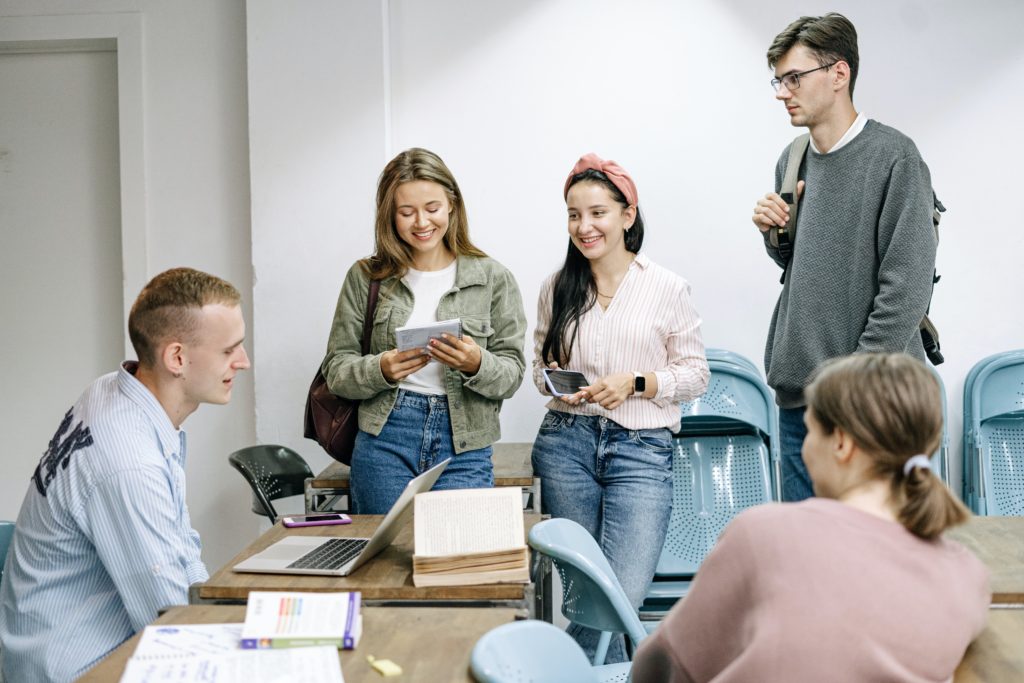
Why does one student effortlessly finish their studies within the standard period of study and the other not? And why can some students easily reconcile university and leisure time, while others are already desperate when it comes to studying? The primary reason is that some students are simply more organized and have targeted strategies for managing their college days. This article highlights important tips for students on how their studies can become personal success stories.
The choice of seats in courses
Often underestimated with the many tips for studying, the seat you chose in the lecture contributes a lot to effective study. Can you really see everything on the board, and do you see the projector’s projection clearly and distinctly? Can you understand the lecturer well – and can he understand you too? Are you really undisturbed, or are you sitting near the door that keeps opening and closing, and in addition to the hustle and bustle of students, do you sit next to a student in the seminar who attracts attention through unpleasant behavior or next to someone who helps you through constructive cooperation? Check your seat very carefully.
The choice of the seat as a success factor
With this tip, students can sustainably promote their success in their studies. It is so resourceful because you can use this hint on the side with minimal effort. Most of the time, further back in the lecture hall, the noise level, the restlessness, and the degree of distraction among the students are significantly higher than further ahead. Students should choose their seats and the people sitting next to them according to these criteria. Where do the others sit? The self-confident and successful, for example, do not sit on the sidelines or in the farthest corner. Use the leverage of a powerful seat for yourself.
Create the right atmosphere.
Place a relaxing feel-good picture in stunning colors next to your workplace. It is right if you come into a wonderful state of relaxation at sight. If the stress level increases, look long and hard at the picture. Let the picture take you into a more relaxed state. As a result, relaxation lowers stress.
Prevent exam stress.
If students study incessantly before the exams, the brain keeps blocking the continuous input. In between, you always need breaks to process what you have learned so far and physically wire it up. Shortly before the exams, there can be phases in which you have the feeling that you have nothing in your head or, even worse, that you know less than you did days before. Sleep in or go-to exercise. Or change the learning topic for a while. And after each learning phase, if you don’t let that discourage you, the jump to a higher learning and knowledge level follows.
Learn in blocks
In general, it is worth dividing the insurmountable workload into individual learning chapters and dividing them into hourly segments. The best thing to do is draw up an hourly/weekly/monthly plan that includes everything you need to learn. This gives you an overview and allows you to concentrate on the day in question.
Take Breaks
Take a break after 60-90 minutes of study. This is the time it takes for the brain to process what it has learned properly. You must give your brain enough space during the break, for example, with walks. But don’t “overload” it with new experiences, like with television.
Pay attention to your diet.
A meal can prove to be an ideal break. It distracts and supplies the brain with essential nutrients. Eat foods rich in vitamins and preferably light food so that all the energy can stay in the head after the meal and is not used in the stomach.
Focus on the goal
Never lose sight of why you decided on this degree. In difficult times, just close your eyes and go on a little fantasy journey and imagine where you could be professionally in a few years. That motivates—try it out.
Remember back
The longer a semester runs, the more there is to be done. At some point, the current tasks will pile up. Otherwise, you will only react to meet the requirements. That makes it difficult to learn with confidence. Then it can help to remember with what hope and with what vision you initially had.

0 Comments